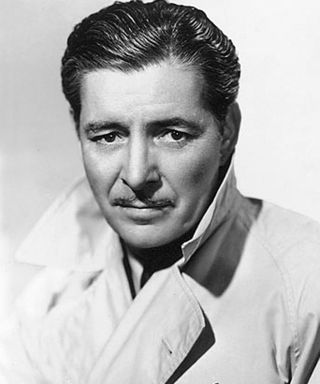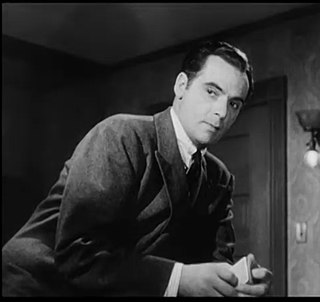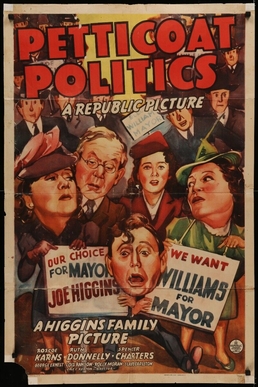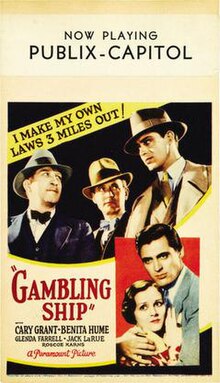
Ronald Charles Colman was an English-born actor, starting his career in theatre and silent film in his native country, then emigrating to the United States and having a highly successful Hollywood film career. He starred in silent films and successfully transitioned to sound, aided by a distinctive, pleasing voice. He was most popular during the 1920s, 1930s and 1940s. He received Oscar nominations for Bulldog Drummond (1929), Condemned (1929) and Random Harvest (1942). Colman starred in several classic films, including A Tale of Two Cities (1935), Lost Horizon (1937) and The Prisoner of Zenda (1937). He also played the starring role in the Technicolor classic Kismet (1944), with Marlene Dietrich, which was nominated for four Academy Awards. In 1947, he won an Academy Award for Best Actor and Golden Globe Award for Best Actor for the film A Double Life.

Meyer Lansky, known as the "Mob's Accountant", was an American organized crime figure who, along with his associate Charles "Lucky" Luciano, was instrumental in the development of the National Crime Syndicate in the United States.

Marc Lawrence was an American character actor who specialized in underworld types. He has also been credited as F. A. Foss, Marc Laurence and Marc C. Lawrence.

Douglas Fowley was an American movie and television actor in more than 240 films and dozens of television programs, He is probably best remembered for his role as the frustrated movie director Roscoe Dexter in Singin' in the Rain (1952), and for his regular supporting role as Doc Holliday in The Life and Legend of Wyatt Earp. He was the father of rock and roll musician and record producer Kim Fowley.

Alibi Ike is a 1935 American romantic comedy film directed by Ray Enright and starring Joe E. Brown, Olivia de Havilland and William Frawley. Based on the short story of the same name by Ring Lardner, first published in the Saturday Evening Post on July 31, 1915, the film is about an ace baseball player nicknamed "Alibi Ike" for his penchant for making up excuses. Lardner is said to have patterned the character after baseball player King Cole.

Mr. Lucky is a 1943 romance film directed by H.C. Potter, starring Cary Grant and Laraine Day. It recounts the tale of an attraction between a shady gambler and a wealthy socialite in the days prior to the United States entering World War II.

Wheeler Oakman was an American film actor.
Anthony Cornero Stralla also known as "the Admiral" and "Tony the Hat" was a bootlegger and gambling entrepreneur in Southern California from the 1920s through the 1950s. During his varied career, he bootlegged liquor into Los Angeles, ran legal gambling ships in international waters, and legally operated casinos in Las Vegas, Nevada.

Ronald Jack Pennick was an American film actor. After working as a gold miner as a young man, serving as a U.S. Marine, he would go on to appear in more than 140 films between 1926 and 1962. Pennick was a leading member to in the informal John Ford Stock Company, appearing in dozens of the director's films. Pennick also drilled the military extras in John Wayne's The Alamo (1960).
The Kansas City crime family, also known as the Civella crime family or Kansas City Mafia, is an Italian-American Mafia family based in Kansas City, Missouri.

Roscoe Karns was an American actor who appeared in nearly 150 films between 1915 and 1964. He specialized in cynical, wise-cracking characters, and his rapid-fire delivery enlivened many comedies and crime thrillers in the 1930s and 1940s.

Edgar Warren Hymer was an American theatre and film actor.

Benita Hume was an English theatre and film actress. She appeared in more than 40 films from 1925 to 1955.

Jack La Rue was an American film and stage actor.
The Little Damozel is a 1933 British romance film directed by Herbert Wilcox and starring Anna Neagle, James Rennie and Benita Hume. It is based on the 1908 play by Monckton Hoffe, previously filmed in 1916. The screenplay concerns a captain who pays one of his sailors to marry a woman who works in a nightclub. Dresses for the film were designed by Doris Zinkeisen.

Charleston is a 1977 Italian comedy film written and directed by Marcello Fondato. It reprises the style of the film The Sting (1973). It was distributed in the United States by Analysis Film Releasing Corporation.

Petticoat Politics is a 1941 American comedy film directed by Erle C. Kenton and starring Roscoe Karns, Ruth Donnelly and Spencer Charters. It was the ninth and final of Republic's Higgins Family series.

That's My Man is a 1947 American drama film directed by Frank Borzage, written by Steve Fisher and Bradley King, and starring Don Ameche, Catherine McLeod, Roscoe Karns, John Ridgely, Kitty Irish and Joe Frisco. It was released on June 1, 1947, by Republic Pictures.

Robert Gleckler was an American film and stage actor who appeared in nearly 60 movies between 1927 until his death in 1939. He was cast for the role of Jonas Wilkerson, overseer of the slaves at Tara in Gone with the Wind, but died during the filming and was replaced with Victor Jory.
Yokel Boy is a 1942 American comedy film directed by Joseph Santley and written by Isabel Dawn. It is based on the 1939 play Yokel Boy by Lew Brown. The film stars Albert Dekker, Joan Davis, Eddie Foy Jr., Alan Mowbray, Roscoe Karns and Mikhail Rasumny. The film was released on March 13, 1942, by Republic Pictures.
















